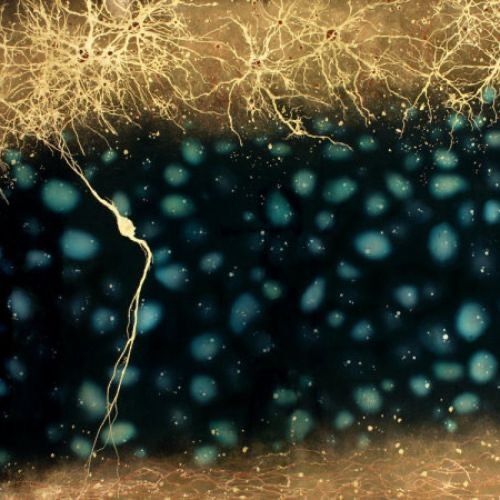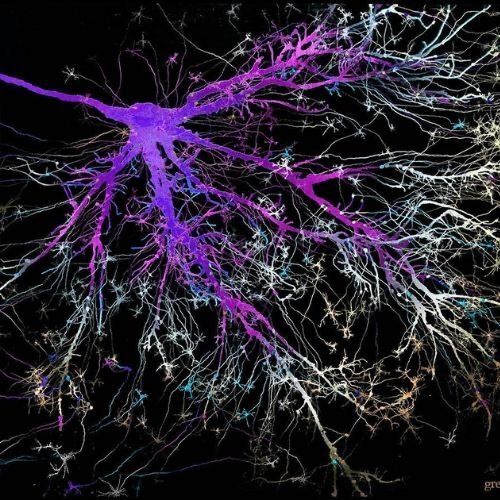Image: Cortex in Metallic Pastels by Greg Dunn
We live in a time when science is validating what humans have known throughout the ages: that compassion is not a luxury; it is a necessity for our well-being, resilience, and survival.
~ Roshi Joan Halifax
The study of compassion has gained significant attention in the field of science, particularly in disciplines such as psychology, neuroscience, and social sciences. Here are some key insights from scientific research on compassion:
- Benefits for Mental and Physical Health: Scientific studies have shown that practicing and experiencing compassion can have numerous benefits for mental and physical well- being. Engaging in acts of compassion and cultivating a compassionate mindset has been linked to reduced stress, improved emotional well-being, increased resilience, and enhanced overall psychological health. It can also positively impact physical health markers, such as lower blood pressure and reduced inflammation.
- Neuroscientific Basis of Compassion: Neuroscientific research has explored the brain mechanisms underlying compassion. Studies have identified specific brain regions associated with empathy, compassion, and prosocial behavior, such as the prefrontal cortex, insula, and anterior cingulate cortex. Neuroplasticity research suggests that compassion training can lead to structural and functional changes in the brain, promoting empathetic responses and compassionate behavior.
- Compassion and Social Connections: Compassion plays a crucial role in building and strengthening social connections. Scientific studies highlight the reciprocal relationship between compassion and social support. Engaging in compassionate acts fosters social bonds, deepens relationships, and promotes a sense of belonging and connectedness. In turn, positive social connections enhance individuals' capacity for compassion.
- Altruism and Prosocial Behavior: Compassion is closely linked to altruism and prosocial behavior. Altruistic acts, where individuals help others without expecting anything in return, are rooted in compassion. Research suggests that compassion motivates individuals to engage in acts of kindness, cooperation, and generosity towards others. Studies also indicate that witnessing compassionate acts can inspire others to exhibit similar behaviors through social contagion.
- Compassion Training and Interventions: There is a growing body of research exploring compassion-focused interventions and training programs. These programs aim to cultivate compassion and empathy, enhance emotional regulation skills, and promote prosocial behavior. Results have shown that compassion training can lead to improvements in emotional well-being, empathy, and interpersonal relationships, both in clinical settings and general populations.
- Compassion in Organizational Contexts: The study of compassion extends to organizational settings, where researchers examine compassionate leadership, compassionate work environments, and the impact of compassion on employee well-being and organizational outcomes. Studies have shown that compassionate leadership styles contribute to employee engagement, job satisfaction, and organizational performance.
- Compassion in Education: The field of education has also embraced the study of compassion. Research highlights the importance of compassion in promoting positive classroom environments, reducing bullying, and enhancing student well- being and academic performance. Compassionate education programs and interventions have been developed to integrate compassion and empathy into school curricula.
It's worth noting that the study of compassion is still evolving, and researchers continue to explore its complexities and nuances.
Mission
Provide a forum for scientists involved in the field of compassion to communicate with one another and make their work accessible to a lay audience.
Vision
Assure that everyone has a better knowledge into the understanding of human behavior, well-being and social connections.
Goals
Define the research directions in compassion science.
Create interviews with leading scientific researchers and practitioners and make them available to the general public on the Charter’s YouTube channel.
Update the Science of Compassion course on a regular basis to assure it is up-to-date with progress in the field.
Strategies
- Meet with contributors of the Oxford Handbook of Compassion Science, one of the first leading academic publications to synthesize the theory and the application of the discipline, to explore:
- research outlined by the authors,
- subsequent research that has occurred in the past six years; and
- implications for future research directions.
- Create a format to be used in interviewing scientific practitioners and researchers working in the field of compassion.
- Create a series of videos for those working in the field of compassion for a lay audience over the next two years and create a new playlist for the Charter’s Youtube channel.
- Bring together scientists involved in this Charter project periodically in a sector circle.
- Take information obtained from interviews and new research acquired to update the Science of Compassion course.
- Determine steps of working with other sectors to inform them of the work of the Science and Research section and to see how research gleaned might affect their work and how sectors can work collaboratively with one another on new insights in the field.









